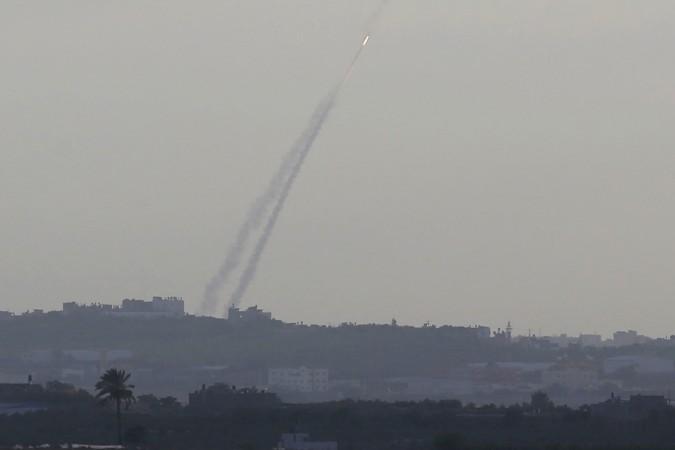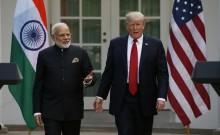
Despite a strong demand by the Opposition, particularly by the Congress and the Communist Party of India (Marxist) to the government to pass a resolution to condemn Israeli attacks on Palestine, the Modi government remained firm that it would not take sides and said it condemned violence from both sides.
By keeping India's policy on the Palestine issue unchanged, External Affairs Minister Sushma Swaraj said in the Parliament on Monday, "There should be one joint message that wherever there is violence, it should be condemned. We should tell both the nations to accept Egypt's offer of talks."
Despite evocative and humanitarian arguments by leaders such as Ghulam Nabi Azad and Sitaram Yechury, with the latter calling the attacks a "genocide" and labeling Israel a "terrorist", Swaraj stood her ground, even reminding the Opposition that the previous government had also never changed the policy.
Swaraj cited that India and Israel had maintained friendly ties ever since the Narasimha Rao government in 1992, and last week she had even tried to resist the discussion in Parliament saying it could affect its ties with a "friendly country."
The government's neutral stance on the issue is rooted in history, with India and Israel's diplomatic ties first cementing under the Rao government in 1992 after the Cold War.
Defence is one of the main criteria for Indo-Israel ties, with Yechury himself stating that India is the largest buyer of arms from Israel. He had, in fact, called for a suspension of purchase of arms from Israel in protest to the attacks on Gaza. Israel is the second-largest arms supplier to India, second only to Russia.
Secondly, given that Israel is close to the US, India's relations with the Western giant is also influenced by its stand on the West Asian country.
Historically, Israel has always sought goodwill with India, be it in the 1971 war with Pakistan when Israel was one of the few nations to have supported India's decision. Israel also refused to condemn India for its 1998 Pokhran nuclear tests, according to Daily News & Analysis. Both countries also have in common the constant threats from Islamic extremists and terrorists to their national security.
Fourth, Israel has developed several world-class technologies that India stands to benefit from, particularly its water-cleaning and agriculture technologies.
Finally, with Narendra Modi at the helm of the new government, India's stance on the issue becomes clear in the context of how Israel has invested billions of dollars in his state of Gujarat and the fact that Modi has always been keen to work closer ties with the West Asian nation.
However, Swaraj did maintain that India was also supportive of Palestine, stating that India contributes $20 million in aid to the Palestinian Authority and $1 million to the United Nations Relief and Works Agency that works for Palestinian refugees, as reported by DNA.
"India fully supports the Palestinian cause while at the same time maintaining its ties with Israel," she said in the Rajya Sabha.
Given that the Modi government enjoys majority in the Lok Sabha, it managed to decide on remaining neutral, even in the face of a walk-out by the Opposition as was the case on Monday in the Rajya Sabha.

















